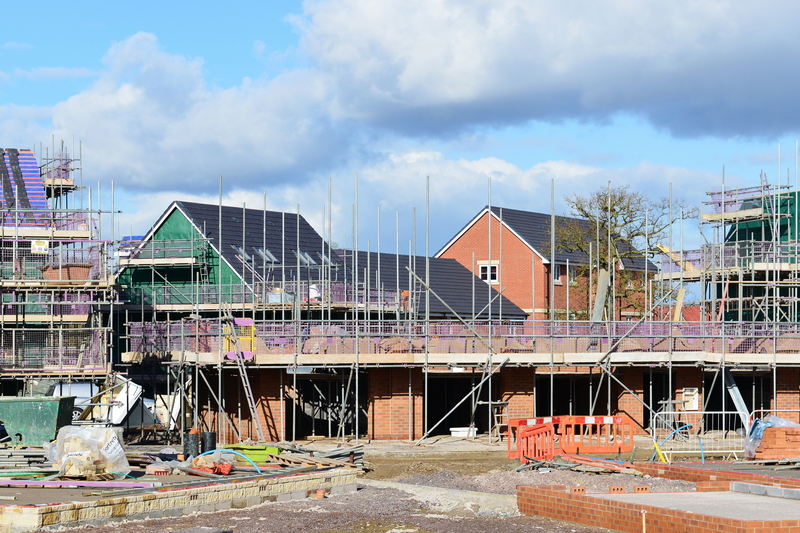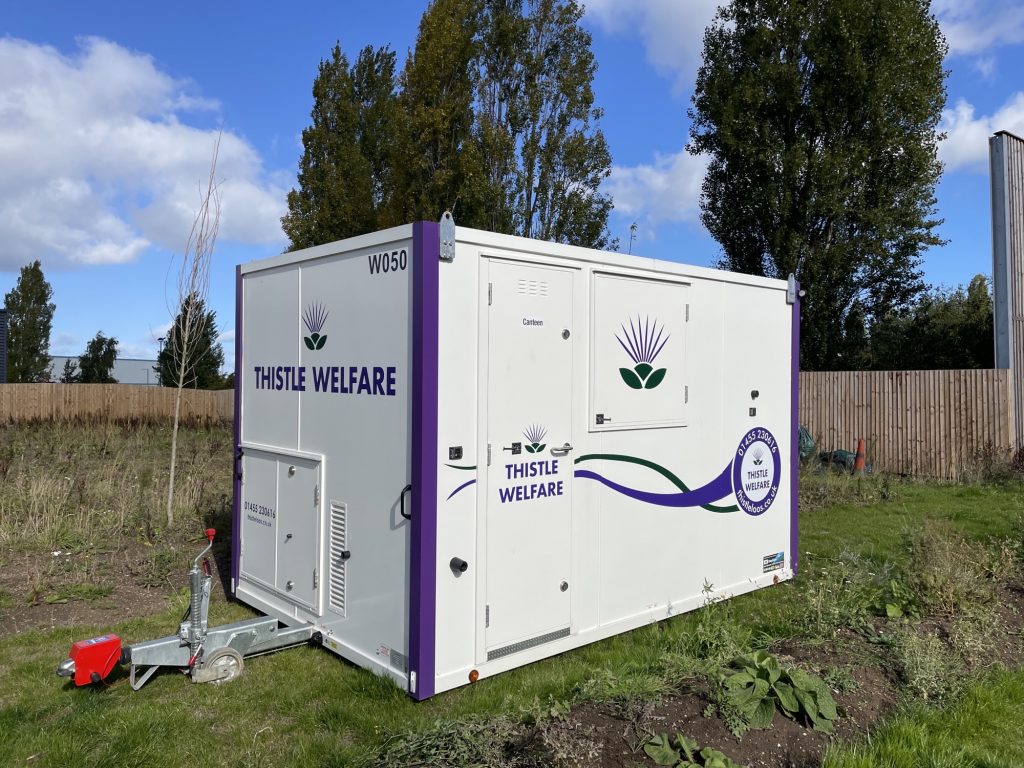Health and Hygiene on Construction Sites
Promoting health and hygiene on construction sites is not just a matter of cleanliness; it’s a fundamental component of ensuring the safety and productivity of workers. Construction environments are inherently dynamic and pose various biological and physical hazards that can jeopardise workers’ well-being. Let’s delve into the critical role that maintaining high levels of cleanliness and hygiene plays in safeguarding construction workers’ health and enhancing overall project success and explore how prioritising health and hygiene can pave the way for a safer and more productive construction industry.

Understanding Health and Hygiene Risks
Construction sites are rife with various biological hazards that can pose serious risks to workers’ health. These hazards include fungi, bacteria, bloodborne pathogens and infectious animals. Workers are susceptible to these hazards through direct contact, ingestion, or inhalation, highlighting the importance of stringent hygiene practices to mitigate the risk of illness and injury.
Frequent handwashing and satisfactory personal hygiene practices are essential for preventing cross-contamination and minimising the spread of harmful pathogens. According to the Health and Safety Executive (HSE), over 69,000 workers suffer from work-related ill health within the construction industry over 3 years. Skin irritation and occupational skin diseases are prevalent among construction workers, underscoring the need for proper hygiene protocols and personal protective equipment (PPE) to safeguard their health.
Legal Requirements and Standards
Ensuring construction site sanitation is not only a matter of best practice but also a legal responsibility. Construction sites are ever-changing environments where workers encounter different hazards every day, ranging from physical dangers to biological pollutants. As a result, regulatory authorities have implemented strict regulations and guidelines to safeguard the safety and welfare of workers. In this segment, we will explore the legal framework governing health and hygiene on construction sites, outlining the essential obligations and standards that construction site managers must follow.
Health and Safety Executive (HSE) Guidelines
The Health and Safety Executive (HSE) is the regulatory body in the United Kingdom, responsible for enforcing legislation relating to health and safety. The HSE offers guidance and resources to assist facility managers in meeting legal requirements and upholding high standards of construction site sanitation.
The guidelines provided by the HSE place significant emphasis on the provision of adequate welfare facilities at construction sites. These facilities include toilets, washing areas, drinking water, and rest spaces. Employers are obligated to evaluate the welfare needs of their employees and ensure that suitable facilities are made available to meet those needs.
Furthermore, the HSE mandates that employers carry out regular inspections and maintenance of welfare facilities to ensure they remain clean, functional, and hygienic. Failure to adhere to the guidelines set forth by the HSE can result in enforcement measures, fines, and potential prosecution.
Implementing Effective Sanitation Measures
Effective sanitation measures are crucial for maintaining health and hygiene on construction sites. Here’s a detailed guide on setting up and maintaining site toilet hire and handwashing facilities, along with emphasising the importance of regular cleaning and stocking of sanitation supplies.
Setting Up Site Toilets:
- Determine the optimal locations for site toilets, ensuring easy access for workers.
- Install an adequate number of toilets based on workforce size and regulatory requirements.
- Ensure toilets are properly ventilated and well-lit for user comfort and safety.
Maintaining Handwashing Facilities:
- Install handwashing facilities near toilets and work areas to promote regular hand hygiene.
- Provide soap dispensers, clean water supply, and hand drying options such as paper towels or air dryers.
- Encourage workers to wash their hands frequently, especially before eating, drinking, or handling equipment.
Regular Cleaning Procedures:
- Establish a schedule for regular cleaning of site toilets and handwashing facilities.
- Use appropriate cleaning agents and disinfectants for maintaining a hygienic construction site.
- Ensure toilets are cleaned thoroughly to remove any dirt, grime, or unpleasant odours.
Stocking Sanitation Supplies
- Maintain a sufficient stock of sanitation supplies, including toilet paper, soap, and hand towels.
- Conduct regular inspections to replenish supplies and address any maintenance issues promptly.
- Emphasise the importance of cleanliness and hygiene to all workers, encouraging their cooperation in maintaining construction site sanitation.
By implementing these effective sanitation measures and emphasising the importance of cleanliness, construction sites can create safer and healthier environments for workers, reducing the risk of illness and promoting overall well-being.
Enhancing Site Welfare with Welfare Units
Welfare facilities play a crucial role in guaranteeing the welfare and satisfaction of employees at construction sites. We will explore their importance and discuss the characteristics that help uphold health and hygiene on construction sites.
Welfare facilities on construction sites are essential, providing a hygienic and secure setting for rest and meals. These units provide a dedicated space where workers can unwind, rejuvenate, and regain their energy, contributing to improved morale and increased productivity.

Features of Welfare Units
Welfare units for construction are available in both static and mobile designs, offering versatility to meet the needs of different construction projects. These units are self-contained, providing convenience and adaptability for installation, even in distant or secluded areas. Let’s look into the essential features of welfare units.
- Water and Electricity: Our welfare units are equipped with water and electricity connections, guaranteeing access to essential amenities even in remote locations.
- Regulatory Compliance: Our welfare units adhere to health and safety regulations, providing a secure and comfortable working environment for employees.
- Comfortable Facilities: Each unit is specifically designed to cater to the requirements of construction workers, offering conveniences such as kitchenettes and relaxation areas.
- Environmentally-Friendly Toilets: Our eco-friendly welfare units incorporate chemical-free toilets, promoting environmental sustainability while ensuring cleanliness.
- Maintenance and Servicing: Thistle Loos offers comprehensive maintenance services for welfare units for construction, including water supply and waste disposal, ensuring optimal functionality and maintaining a hygienic construction site.
- Size and Specifications: The layout of our welfare units is meticulously planned to maximise space while accommodating the necessary amenities for staff comfort and convenience.
Best Practices for Personal Hygiene
Maintaining personal hygiene is paramount for construction workers to safeguard their health and welfare on construction sites. By implementing effective practices, workers can minimise health risks and contribute to a safer working environment. Here are some essential guidelines to ensure optimal standards for construction site sanitation:
- Use Personal Protective Equipment (PPE): Wear gloves, safety goggles, and protective clothing to minimise contact with harmful substances and uphold hygiene.
- Training and Awareness: Conduct regular training sessions to educate workers about hygienic practices and cultivate a culture of safety.
- Waste Management: Properly dispose of waste to prevent diseases and maintain cleanliness on-site.
- Hygiene Inspections: Carry out regular checks to uphold cleanliness standards and promptly address any concerns.
- Healthy Eating and Drinking: Provide clean eating areas and encourage workers to stay hydrated and maintain a well-balanced diet.
- Mental Well-being: Promote stress management and work-life balance to support the overall well-being of workers.
Enhance the health and hygiene on construction sites by utilising the extensive selection of site toilet hire and welfare units for construction provided by Thistle Loos. Our facilities are designed to cater to different project sizes and specifications, ensuring consistent functionality and cleanliness. With convenient locations in Leicester and Coventry, we offer prompt servicing to promote a safer and healthier work environment. Contact us today to learn more about our services.
